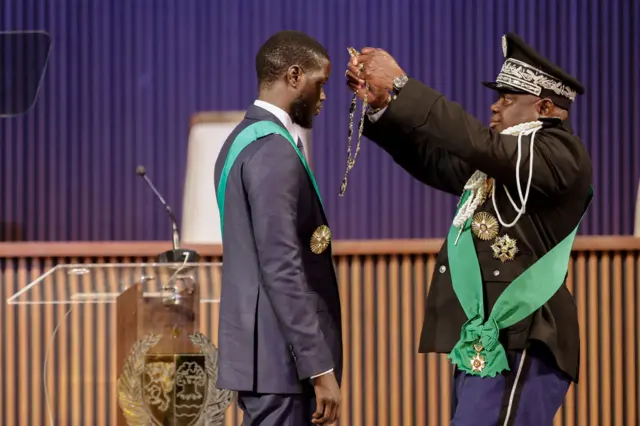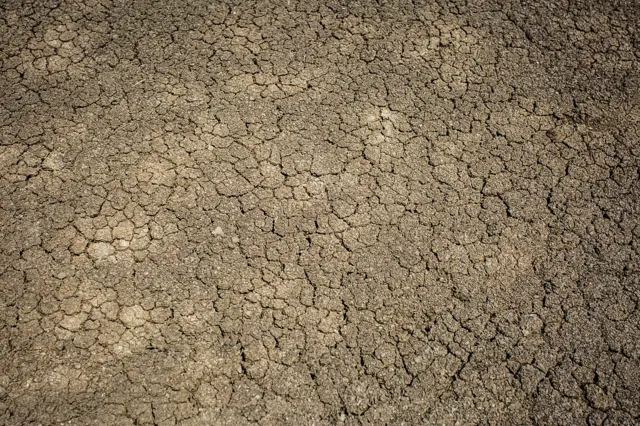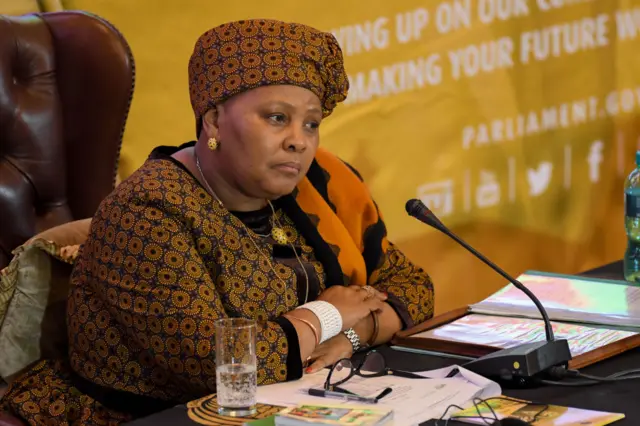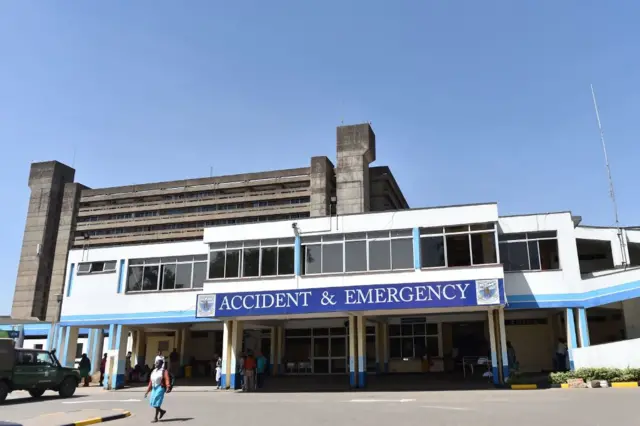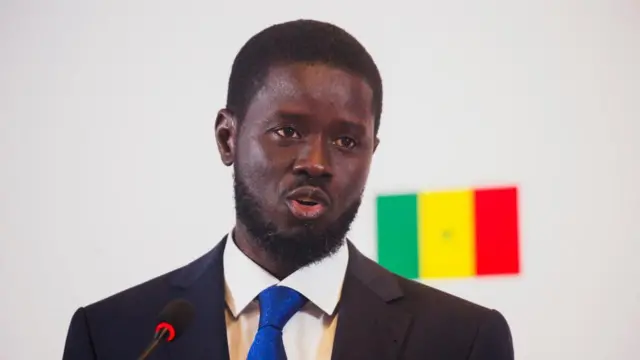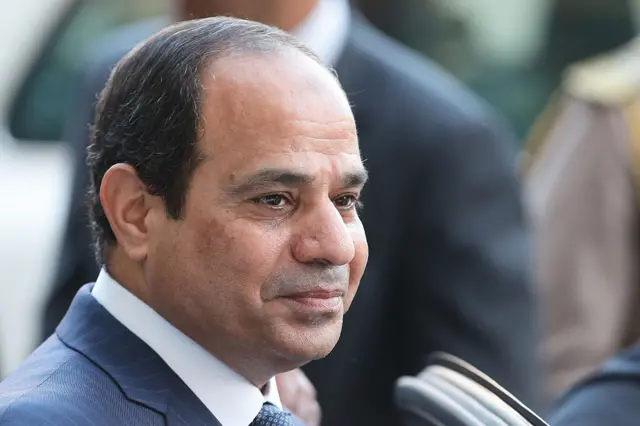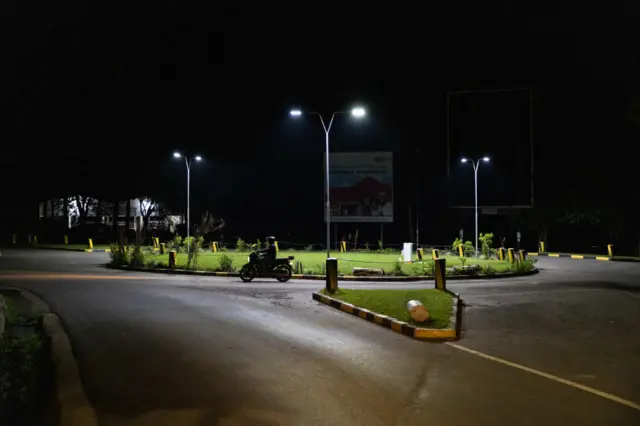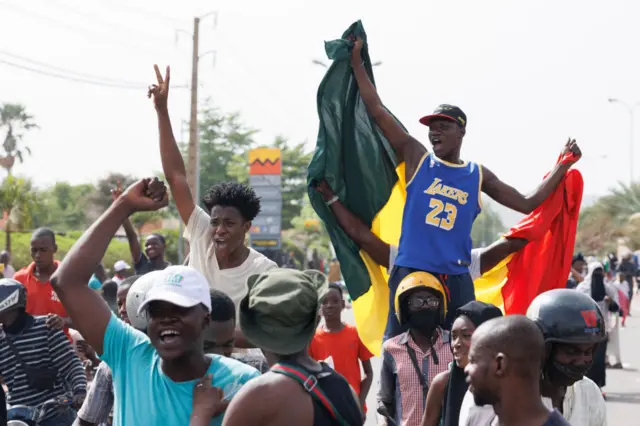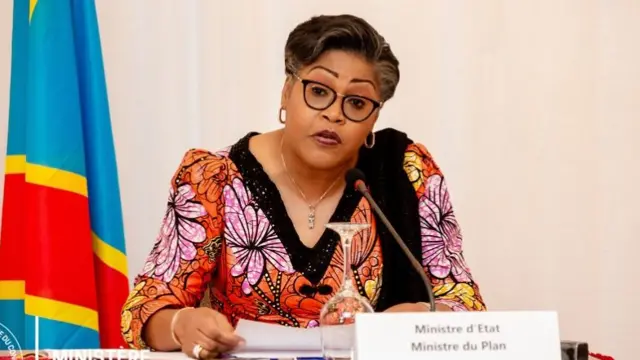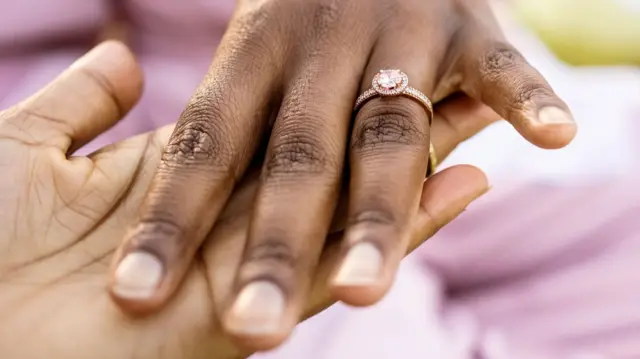African unity and deep change urged by new Senegal presidentpublished at 13:33 BST 2 April 2024
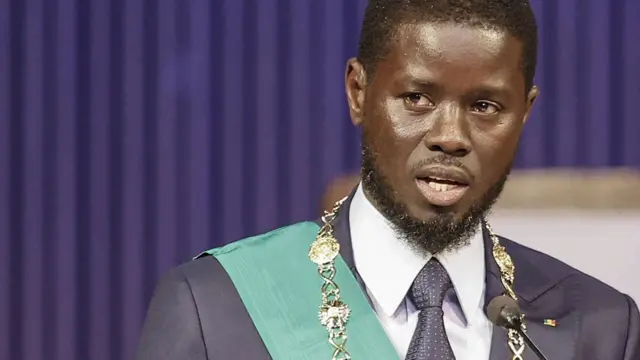 Image source, AFP
Image source, AFP"Systemic change" and "greater sovereignty" are among key promises Senegal's new president made to the nation at his inauguration on Monday.
More solidarity is also needed between African nations to tackle threats to security, the freshly minted leader said to an audience of hundreds of officials and several African heads of state in Diamniadio, near Dakar.
Several West African nations are ruled by military juntas which are trying to combat jihadist insurgencies.
Senegal faces numerous challenges including youth unemployment, a cost of living crisis and corruption.
Taking the oath of office, President Bassirou Diomaye Faye declared:
Quote MessageBefore God and before the Senegalese nation, I swear to faithfully fulfil the office of President of the Republic of the Republic of Senegal, to observe as well as to conscientiously abide by the provisions of the constitution and the laws, to devote all my power to defending the constitutional institutions, the integrity of the territory, national independence and to spare no effort to achieve African unity."
He also said that, under his leadership, Senegal would become a country of hope with a strengthened democracy.
